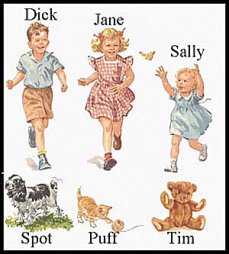 How often do we check to see if our students are still breathing or if they have gone on to another place? One of my colleagues once said she believed she could “burst into flames” in the classroom without the students showing any reaction! Goodness!!! Unfortunately, I have to admit, I have had those same thoughts about some of my students and classes.
How often do we check to see if our students are still breathing or if they have gone on to another place? One of my colleagues once said she believed she could “burst into flames” in the classroom without the students showing any reaction! Goodness!!! Unfortunately, I have to admit, I have had those same thoughts about some of my students and classes.
Several months ago, pleasureinlearning, published a piece asking what you remember about some of your teachers. Do you remember their boring lectures, their clothes, something they said to you (good or bad), or their enthusiasm about their subject? Think about it for a moment…then think about what you are doing in the classroom. How are your students going to remember you? That might be a scary thought.
I have previously written about storytelling, a good medium for entertainment and for transmission of knowledge. I also commented on a very negative response I received from one of my junior high school teachers. I never will forget it! It was seventh grade science class ….well, I don’t need to revisit that again.
Recently, Annie Murphy Paul, posting in “The Brilliant Report,” wrote an article discussing how to make stories come alive. Acting out stories is the key. Moving objects or moving your body bridges the gap between real-life people, objects and actions and the printed words that represent them.
Research done by Arthur Glenberg, Professor of Psychology at Arizona State University, demonstrated that when individuals are provided the opportunity to act out a written text, their reading comprehension will double! His research also indicated that when students develop this acting-out technique, they develop the ability to “enact” these scenarios in their heads. Their brains are drawing from experiences, sensations, and movements representing what they have read. Now they have a mental picture of what has been written on the page, thus leading to a better understanding of the subject.
 So, back to reminicsing—When I was in college, I was required to read a lot of written material. Every word I read was a dreadful experience for me! I know what you’re thinking: how could anybody not enjoy reading? Well, I DO NOT LIKE TO READ! There I said it. Thank you. I feel much better getting that off my chest.
So, back to reminicsing—When I was in college, I was required to read a lot of written material. Every word I read was a dreadful experience for me! I know what you’re thinking: how could anybody not enjoy reading? Well, I DO NOT LIKE TO READ! There I said it. Thank you. I feel much better getting that off my chest.
What does this have to do with being alive or dead? Simply this, in my second year of college, it was time for me to move on from ENG 101 to English 235 which was ENGLISH LITERATURE! Holy crap! Reading! I thought, ” I will never make it through this.” As luck would have it, a college friend suggested Mrs. Carolyn Carhu for English Lit. That was one of the best pieces of advice I ever got in school.
I immediately registered for her class and thought to myself,”You are either going to die trying or somehow live through it.” Well, as you can see from this writing, I did live through it. It was one of the best and most interesting classes I took on my undergraduate pilgrimage.
What made it so interesting? Why did I want to read everything with such a passion? What kind of spell did she put on me? Was it voodoo? No, she acted out the pieces of literature that she had assigned. Acted/them/ out. Her best performance was the day we studied the Trojan Wars in The Iliad and the The Odyssey. I can still close my eyes and see the stick figures of soldiers on the board. Ms. Carhu ran back and forth across the front of the room erasing those who were killed and drawing the emergence of new characters. How great was that? 
How many times have we educators done something like this in our classroom? Maybe it’s time for a change. Get out of your comfort zone and show off your acting skills. Who knows? Maybe Broadway is waiting for your debut.
Make your class come alive.
















